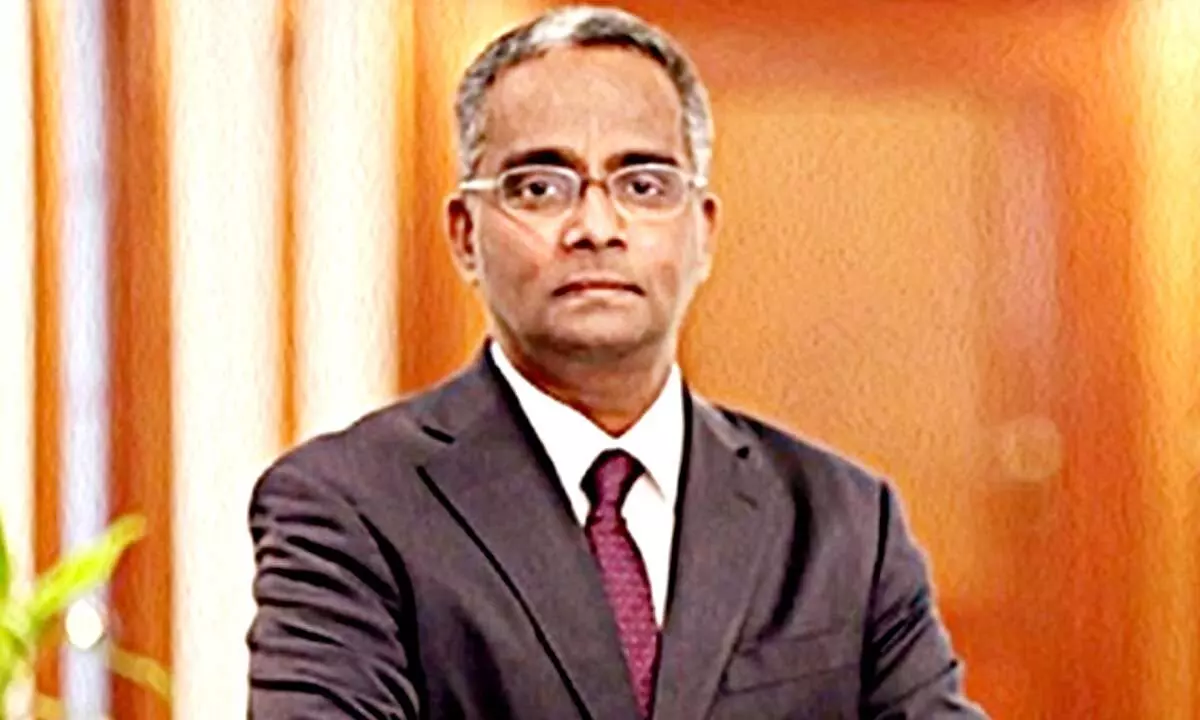Indian banking will maintain its growth momentum: South Indian Bank CEO
Says long period of banking book consolidation, biz process improvement, including customer service, risk management & digitalization likely to help Indian banks to keep the growth momentum in FY24
image for illustrative purpose

Growth in credit, mergers and acquisitions, digital initiatives by the Reserve Bank of India (RBI), and the shift in preference for rupee credit over external commercial borrowing (ECB) were the major happenings in the banking sector in 2022, a top official of the South Indian Bank said looking back at the year gone by.
"Set up in 1929, South Indian Bank has a network of 928 branches and 1,156 ATMs. The bank's advances stood at Rs 67,963 crore as on September 30, 2022 with retail, small and medium enterprises, and agricultural advances accounting for 70 per cent of the book," Murali Ramakrishnan, MD and CEO, in an interview. The Bank's Vision 2024 focuses on the 6 Cs - capital, CASA, cost-to-income, competency building, customer focus, and compliance, Ramakrishnan added.
The acceleration of private investments, increased need for working capital, switch in corporate borrowing from bonds to bank loans, and shift in preference for rupee credit over ECB have all contributed to bank credit growth. Deposits growth moderated, within that term deposits witnessed an uptick due to increase in interest rate and CASA (current account, savings account) growth slowed down
What were the major regulatory developments in 2022 and their impact on the banking sector?
The Reserve Bank of India (RBI) has issued Master Direction on Digital Payment Security Controls and these guidelines will create an enhanced and enabling environment for customers to use digital payment products in more safe and secure manner and provide more clarity to banks to partner with Fintech and other digital partners.
Also, RBI launched a pilot project on Central Bank Digital Currency (CBDC). The use of wholesale digital rupee is for the settlement of secondary market transactions in government securities as it would reduce transaction costs. CBDC may benefit consumers in terms of liquidity, scalability, adoption, convenience of transactions with anonymity, and quicker settlement.
Furthermore, the RBI has launched a pilot to digitize kisan credit card (KCC) lending in a bid for efficiency, higher cost savings, and reduction of turnaround time. This is expected to transform the flow of credit in the rural economy.
In addition, the RBI initiated to Enhancing the Mandates of Unified Payments Interface and Expanding the Scope of Bharat Bill Payment System is likely to speed up the pace of digital adoption
What actions have your bank taken on the above?
South Indian Bank is exploring various collaborations with the Fintech partners or the non-banking finance companies (NBFC) who have presence in their own market. This is exactly demonstrated in South Indian Bank's credit card relationship with One Card. It is a co-branded card and South Indian Bank has issued over 150,000 cards within one year of the partnership.
What were the high and low points for the banking sector? What is the big industry trend you saw during the year? How did your company respond to it?
The acceleration of private investments, increased need for working capital, switch in corporate borrowing from bonds to bank loans, and shift in preference for rupee credit over ECB have all contributed to bank credit growth. Deposits growth moderated, within that term deposits witnessed an uptick due to increase in interest rate and CASA (current account, savings account) growth slowed down.
Due to the slowdown in retail deposits coming in, banks are depending increasingly on Certificate of Deposits and bulk deposits. Without making a significant change to the savings rate, banks have concentrated on raising rates on term deposits.
On the asset quality side, credit costs and gross non-performing assets (GNPA) continue a downward trend in CY2022. Credit costs are at lowest levels since FY17, boosting overall profitability. Asset quality is stable for private banks and NPAs for public sector banks declined and bounce rates comfortably lower than pre-covid average. Overall, profitability improved in CY2022, supported by healthy increase in margins and lower credit costs.
In CY2022, the Indian banking industry continues to witness an uptick in end-to-end digital adoption across new accounts, deposits, investments, cards, and loans. Digital Transactions in the industry continue to gain market share, especially UPI and mobile and internet banking alone having the major share of transactions.
Do you think mergers and acquisitions (M&A) are likely to accelerate in the next financial year?
Indian commercial banks, in both the public and private sectors, have actively engaged in M&A deals during CY2022. The Indian banking sector has witnessed three major mergers/acquisition-related news in CY2022, which include merger between a large bank and a housing finance company belonging to the same group, privatisation of a public sector bank and an Indian private bank acquiring the retail business of a foreign bank. These deals are likely to be concluded in CY2023 and similar deal momentum is likely to continue in CY2023.
Looking forward to the next fiscal, your views on how FY 2023-24 would pan out?
Indian banking sector is strong, stable and resilient poised to support economic growth. Its health has improved in recent years as reflected in key indicators like capital adequacy, asset quality, net interest margins (NIM) provisioning coverage and profitability.
Long period of banking book consolidation, business process improvement, including customer service, risk management and digitalization likely to help Indian banks to keep the growth momentum in FY24.
Also, the NIMs will be watched closely, as repricing of both assets and liabilities happen. The increasing interest rate, protracted geopolitical tension, the negative spillovers from global slowdown, tightening of global financial condition and its effect on the domestic economy, however, might continue to weigh on the outlook.

